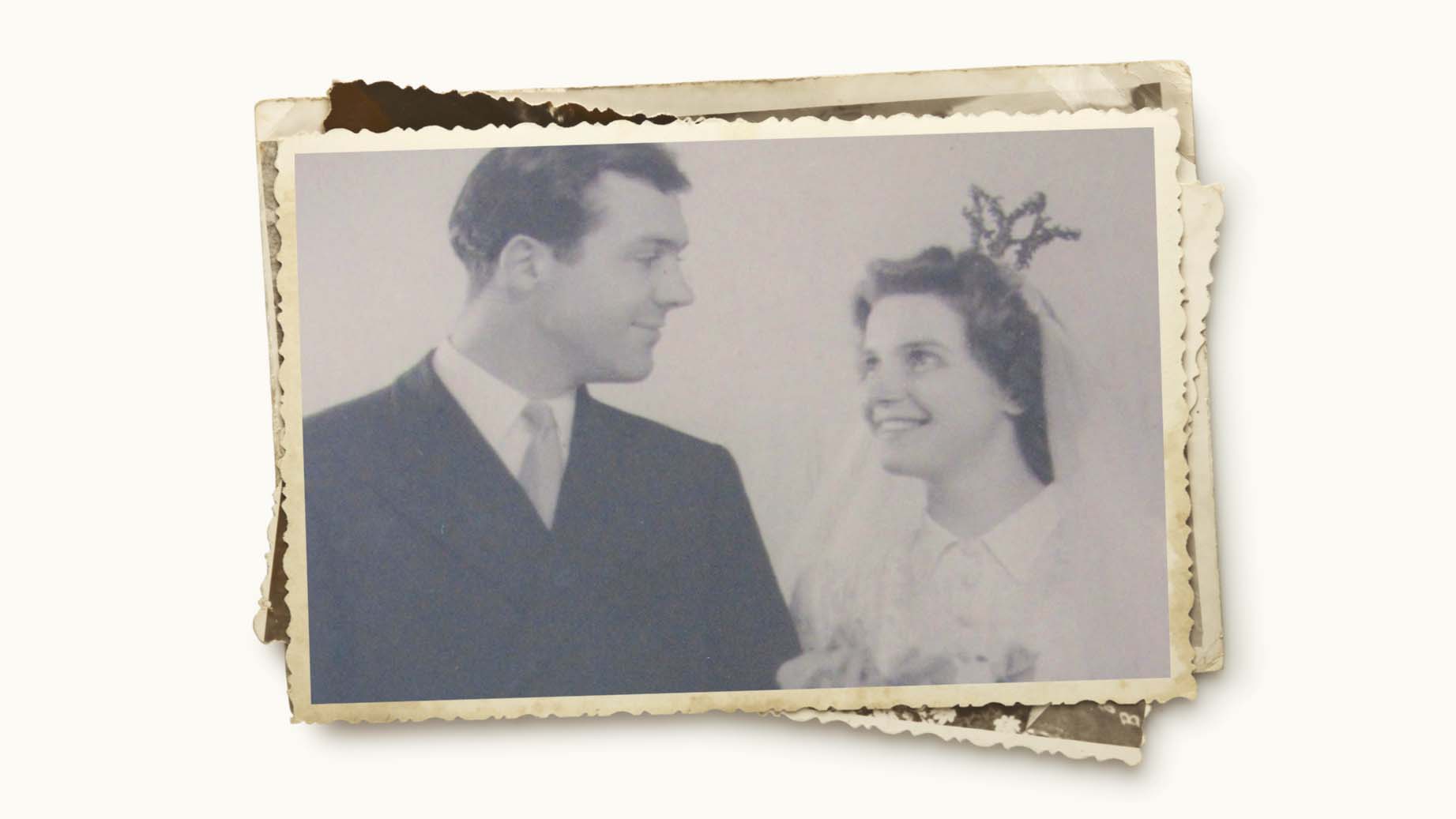It all started when they were 17.
She said it was an accident; he said it was deliberate. They were a couple of college students at a Saturday night social, when she slipped over in front of him. Whatever the truth of the matter, when he—a tall, handsome young man from England—gallantly bent down to help her up, and she—the shy beauty from Scandinavia—smiled sweetly, something was kindled which, by the end of the year, felt to her very much like love. So when it came time for her to return home to Sweden, she suggested one last meeting. He never turned up.
The journey home was heavy with disappointment. High atop the Eiffel Tower, she looked longingly toward London, bought a post card and wrote “Missing you”. It worked. The dying embers were fanned into flame and letters began to flow.
But then the war broke out. Correspondence was censored and travel between countries became impossible.
Well-meaning friends in England encouraged him to forget his Scandinavian love and notice the eligible girls at home. Swedish friends urged her to settle for a local beau rather than wait for a foreigner she may never see again.
But true love waits; and when, after seven long years, a cease-fire was declared, she booked a berth on the first ship to cross the Baltic to London.
It was a cold November morning, the day her ship was due in Southampton. He was early at the dockside, peering through the thick London fog for some glimpse of his beloved. Finally, the outline of a steamer appeared in the mist. His heart began to race, as his eyes eagerly scanned the decks. Sure enough, a waving hand. He waved back; and the harder he waved, the more eager the response. But as the ship grew closer, he saw that the person he was waving at was dressed, not in a skirt but a suit. He was waving at the wrong person!
Most of us spend our lives waving at one thing or another —an ideal relationship, a dream home, a grand overseas holiday, a brilliant career—believing that what we are waving at is what we’re really looking for. But something happens that suggests it is not.
CS Lewis puts it well: “The longings that arise in us when we first fall in love, or first think of some foreign country, or first take up some subject that excites us, are longings that no marriage, no travel, no learning can really satisfy. I am not now speaking of what would ordinarily be called unsuccessful marriages or holiday or learned careers. I am speaking of the best possible ones. There was something we grasped at, in that first moment of longing, that just fades away in the reality.”
Many people miss the point and blame the things themselves. It was the wrong relationship; the holiday was falsely advertised; the dream home was in the wrong location. And so they spend their lives wandering from one partner to another, from continent to continent, from house to house, always thinking that the latest is “the real thing” at last, and always disappointed.
Others say it’s all a mirage, and one should learn to settle down and repress that part of oneself which “cries for the moon”.
But for others, the longings are real and should be taken seriously. Reasons Lewis: “If I find in myself a desire which no experience in this world can satisfy, the most probable explanation is that . . . earthly pleasures were never meant to satisfy it, but only to arouse it, to suggest the real thing.
“King Solomon put his finger on the heart of the matter. ‘God . . . has planted eternity in the human heart’ (Ecclesiastes 3:11). If that is so, I must take care, on the one hand, never to despise, or be unthankful for, these earthly blessings, and on the other, never to mistake them for the something else of which they are only a kind of copy, or echo or mirage” (Mere Christianity, p118).
How tragic it would be to spend all our lives waving at the wrong thing, and miss what it was all about.
It did end well at the dockside, that early morning in the London fog. The love of my father’s life was on that ship; she was below deck in her cabin, prettying herself for the long-awaited reunion. And yes, they did live happily ever after and they had four children.
Roger Vince is Pastor of Norfolk Island Seventh-day Adventist Church.






